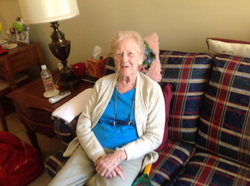 My mother, Elsie Novak, died on November 6. May her memory be for a blessing My mother, Elsie Novak, died on November 6. May her memory be for a blessing I recall times when as I child I lay sick in bed. My mother would gently rub Vick's VapoRub on my chest, and then cover it with a dry wash cloth. So warm, so soothing, so mentholated. Even now I can feel my mother's hand doing its magic. And when I look at my hands, I see hers - freckled, thin, and yes, aging. If only my hands could pass on comfort as my mother's did. This story took place in the north of Lebanon in the village of Hamadin. And the happening, as told, goes like this: In the village lived a widow and her beautiful daughter, an only child. One day the daughter became ill and was ordered to rest. And so she lay on her bed near the window and looked out at the only tree in the yard. Thus, days, weeks, and months passed, and the autumn came. But the girl's condition didn't improve. On the contrary, she grew worse. And so, one day, as she looked at the tree, she said weakly, "You see, Mother, see those leaves. When the last leaf falls, I will die." The mother's heart grieved, and she watched anxiously as the leaves fell. One cold night the wind howled, and the mother's heart was full of despair, as she saw the wind taking the last leaves. With every leaf her heart sank even deeper. At last there was only one leaf left. What could she do? So the poor woman ran outside, unaware of the cold, the gusts of wind, and the storm. She approached the wall in front of the tree, and there she painted, on the wall, a picture of the last leaf. So good, so accurate was the drawing, that it looked like the last leaf itself. When the girl awoke, she looked out the window, and there she saw one lonely leaf. Days and weeks passed. From time to time she looked out, amd always she saw that last leaf, still hanging on the branch of the tree, A new spirit entered the girl. Slowly, slowly she recovered, and at last she got well. But the mother, by going out on that windy night, had caught cold. She developed tuberculosis, and soon died. When the girl was able to leave her bed, she went outside to see the miracle that had occured: Why had that leaf not fallen? And what did she see? The painting, done by her mother, which had cost her her life for her child's sake. Then the girl realized her mother's great love, and grieved greatly for her mother who, in her own death, had given life to her. The Mother, a Lebanese Folktale, retold by Barbara Rush, from The Jewish Spirit: A Celebration in Stories & Art ººººººººººººººººººººººººººººº
My late rebbe, R' Zalman Schachter-Shalomi, zt"l, (זכר צדיק לברכה) was a master storyteller. He taught, in the name of Abraham Joshua Heschel zt"l: "a mayse is a story in which the soul surprises the mind". "A Year of Stories" is dedicated to his memory. I invite you to forward the link to these stories so that they find their way into the hearts of other listeners and tellers. ∞∞∞∞∞∞∞∞∞∞∞∞∞∞∞∞∞ Please consider offering a tax deductible donation to support this project and the work of DC's Jewish Renewal community Minyan Oneg Shabbat. If you would like to be added to the growing list of "Year of Stories" followers, let me know at [email protected], with "Year of Stories" in the subject line.
0 Comments
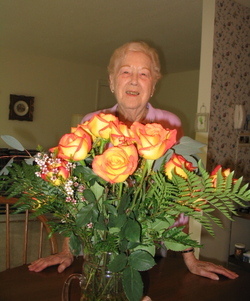 Shloshim is the number 30 in Hebrew, and this past Tuesday morning, immediately following Shacharit, the morning prayers, marked 30 days since my mother Elsie's burial. I have been going to synagogue daily to davven and to say Kaddish for her. When the moment arrives to stand and remember, the service leader asks everyone to share the name of the person whom s/he is saying Kaddish for. I say, "My mother, Elsie Novak, Osnat bat Moshe Bayer haCohen v'Nachuma." The mourners and those observing yahrtzeit proceed to say the words together, the text of the Jewish mantra which dating back to the 1st C BCE, words which serve to sanctify all life, as we gently guide the soul of our loved ones back to their source. While saying Kaddish last night I began to cry. The tears came not from immediacy of my mother's death, that has subsided with time, but rather from a fear that after only 30 days the recitation of the Kaddish was already feeling somewhat rote, routine, and G!d forbid, mundane. I don't want my remembering to become distracted habit, I want it to stay fresh and vibrant and heart-opening. How had 30 days had passed so quickly? The truth of that saddened me. The text of the Kaddish is engraved in me. I do not need to read it from the siddur. יהא שמה רבא מברך... With my hands free my mind began to wander. I heard the echo of a word that my mother used to use: PLICHING When it was raining very, very hard, my mother would say that "it's pliching out." I never had had any impulse to research the origin of the word, but during shiva, when many things have time to surface, I took the opportunity to pick up my English-Yiddish dictionary, and sure enough, there it was: פליוכרעגן (someone please help me with the pronunciation here). I smiled, and acknowledged that it had taken me all of my life to look up the word that my mother used so often. Why had it taken until now? More tears welled up. The Kaddish continued, לעלא מן כל ברכתא ושירתא Another word arose in my consciousness, KAMMONDAVING. My mom used this word to mean making a racket, or commotion, as in "Who needs all that kammondaving around the house." I was less successful finding any origin of this word in the dictionary. Perhaps my mother had made it up? The sense of the word did play a role before shiva started. I had decided that although I would let my various communities know of my loss, I was not going to advertise the times that we would be sitting shiva. I don't like the vibe after prayer, which more often than not turns into a loud social gathering as opposed to being in a house of mourning. I questioned my decision not to make the times public, but at one point realized, "That's my mother! She wouldn't have liked all the kammondaving in the house." Another way that my mother lives on through me. I have 10 months left to say Kaddish for my mom. The ritual will take me through the winter, spring, summer, and fall; through the entire year's cycle of holidays; through planting and tending and reaping and finally again laying to rest my beloved garden; through watching the budding of our lilac tree, until it flowers, when I will bend a branch to my nose, a havdalah moment, and I will gather in my mother's favorite fragrance. I will then say out loud, "Hello Mamale"; through another baseball season where every batter's intention is to circle the bases and return home. עשה שלום במרומיו הוא יעשה שלום... I wipe the tears from my eyes, and a sense of peace comes over me. Death, burial, shiva, shloshim; minyan, kaddish, breathe. אמן Amen  Minyan Oneg Shabbat has been offered a Matching Grant up to $1500. As of 12/11 only $418 more to raise by 12/31! Please consider offering a tax deductible donation of $18 or more to support this project and the work of DC's Jewish Renewal community Minyan Oneg Shabbat. All proceeds go to providing us with rental space and the ability to dream a little bigger. 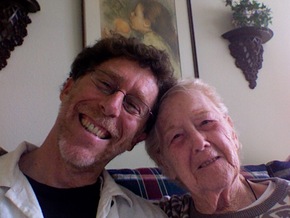 It is now 3 weeks post burial. My chest is a little less heavy, my gait a little freer from the weight of sadness. My beard is sorely in need of trimming, but when I look in the mirror, it doesn't matter, evidenced by the tears that still flow easily as I write this. Luckily, I am frequently in a setting where no one asks about my three weeks of facial hair, I am where everyone knows why my outward appearance is less socially presentable. I am in minyan. As we know, a minyan is necessary for the recitation of certain prayers, among them the mouner's kaddish, an opportunity to sanctify life, and my opportunity to help the return of my mother's soul to its source. Traditionally known as "kaddish yatom", I understand that term more acutely personal now. It is the "orphan's prayer", and I am now without both my mother and father. Reb Zalman would say that I now wear the "white beard". I am the elder. In an interview that she gave after her father died, singer Roseanne Cash shared that, no longer having a living parent, she now felt that "the last barrier between herself and her own mortality had been removed." That powerful insight remained with me, bookmarked for a future date, and was one of the first things that came to mind when my mother Elsie died. This past Sunday morning, as worship began, we only had 9 people. Those of us who were there to say Kaddish were keenly aware of the lack of a quorum to do so. On a weekday someone would have gone across the hall to ask one of the secretaries to join us. But on a Sunday, not so. When we reached the moment to say Kaddish d'Rabbanan, the leader called out a page number that signaled we were skipping Kaddish and moving on to the next section of the liturgy. Immediately, one of the women called out, "Wait, let me see if anyone is coming." The leader paused, and the woman left the room. Those of us remaining sat in silence, and waited - 1 - 2 - 3 - perhaps 5 minutes, before the woman returned with good news in the form of several additional people who were joining us. There was something about the quality of those minutes of silence that deeply resonated within me and between those of us who had sat quietly waiting. Time seemed to stand still. In the stillness I felt held by G!d and community. Reb Zalman teaches a possible understanding for ברוך שם כבוד מלכותו לעולם ועד to be "Your glory shines through time and space." Indeed, in the stillness the glory shined through - so true, so real, so effortless, so comforting. That evening, I returned to shul for Ma'ariv. One woman was saying kaddish for her father. It was her last day, after 11 months, that she needed to do so on a daily basis. She was clearly very emotional, and cried openly. She later shared that it was the anticipation she had about the "last day" that had shaken her. She thanked us all for our presence. I recalled the Kotzker Rebbe's gentle reminder that "there is nothing so whole as a broken heart". I also recognize that there is nothing so whole as a minyan. Ten adult Jews relying on each other's presence - to pray, to remember, to rebuild, to dream awake, and to hold each other in sacred community. My week of shiva was a profound experience, and I am grateful to everyone who took the time to touch base with me, whether by phone or FaceBook, e-mail or of course, by paying a shiva call or by your presence at one of the three shiva minyanim at my home. From time to time I will be sharing some reflections on my mourning journey. I welcome you to share thoughts from your own shiva experience. If you do so, please post it on this blog as opposed to Facebook. The power of Jewish practice during mourning. I write this as thousands mourn those slain in this week’s Jerusalem massacre. I cannot begin to imagine the grief of those who will be mourning there in the days and weeks to come. My experience is obviously a different one. What is common is that community will gather around the mourners and hold them within the structure that has been built with חסד- kindness - by those who came before us. How indebted we are to their insight, and to the container that is shiva, shloshim, and shana. Already I have begun to sense the process beginning to work - from mourning, to harvesting, to integration. The process is not a linear one, and I can powerfully feel that it will remain active within me for a long time to come. ¨¨¨¨¨¨¨¨¨¨¨ I was pleasantly surprised by the emotional power of Facebook. Many of you read my original post about my mother’s passing. It received the highest number of hits of anything I have ever posted, over 300 in 3 days on FB and on Weebly where my blog is hosted. Many of you posted condolences, and some of you IM’d me, including just this second, someone who I have not spoken to or seen for perhaps 25 years and who has never met my mother! He wrote: “Just saw your brother in law in Denver and he told me about your recent loss. I am very sorry to hear the news. May you and your family be blessed with nechama, comfort and support.” How blessed I am. News travels fast in our small, tightly woven Jewish world. I sometimes joke that there are only 36 Jews in the world and we all run around in circles, making contact with each other over and over again. As a mourner, I feel sonsolation from being held by my community. ¨¨¨¨¨¨¨¨¨¨¨¨ I could not help but notice that several people commented on my sister’s FB page: “Is there anything that I can do?” or “Please let me know what I can do?” Not to say that we Jews have a monopoly on kindness, but these offers came from non Jews. Yidn are blessed to have a response in the form of action already put in place by tradition. Renée shared with me that a non-Jewish friend of hers was so moved by Renée’s experience during the mourning process after her mother died that the friend took on a similar practice after the loss of a loved one in her life. Such is the power of our tradition. We don’t offer - we do. One friend offered to pick me up from the train station when I arrived post burial in DC from NJ; another sent a platter of food that lasted all week; another showed up with a carload of food that could feed an entire town, bought by monies collected from 8 other friends; each night 25-30 friends showed up for shiva minyanim, listened to me tell stories about my mom, sang with me, prayed with me, laughed with me, and then knew when to leave, all except the few who lingered to ease my transition from full house to being alone with my thoughts once again. |
Mark Novak is a "free-range" rabbi who lives in Washington DC and works, well, just about everywhere. In 2012 he founded Minyan Oneg Shabbat, home to MOSH (Minyan Oneg Shabbat), MindfulMOSH (Jewish mindfulness gathering), and Archives
June 2017
Categories
All
|

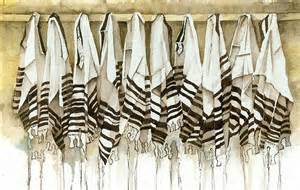
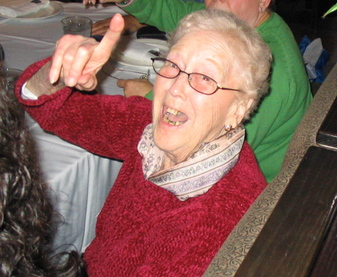
 RSS Feed
RSS Feed
